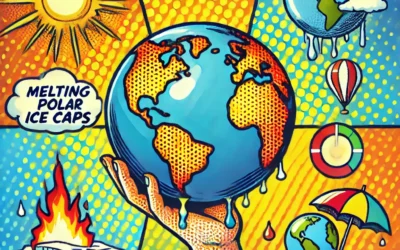Environmental science is a multidisciplinary field that integrates various scientific disciplines to study the environment and the complex interactions between humans and natural ecosystems. By understanding the principles of environmental science, we can develop strategies to protect our planet, mitigate environmental damage, and promote sustainability. This article explores the key concepts of environmental science, its importance in today’s world, and how it is applied to address global environmental challenges.
What is Environmental Science?
Environmental science is the study of the environment, including the physical, chemical, and biological processes that shape the natural world. It also examines the impact of human activities on these processes and the environment as a whole. This field draws on knowledge from various disciplines, including biology, chemistry, geology, ecology, and social sciences, to provide a comprehensive understanding of environmental issues.
Environmental scientists work to identify, analyze, and address environmental problems such as climate change, pollution, deforestation, and loss of biodiversity. By using scientific methods and tools, they develop solutions that aim to reduce or eliminate the negative effects of human activities on the environment.
Key Areas of Environmental Science
1. Ecology
Ecology is a central component of environmental science, focusing on the relationships between living organisms and their environment. Ecologists study ecosystems, the interactions between species, and the flow of energy and matter through ecological systems. Understanding these relationships is crucial for maintaining the health of ecosystems and the services they provide, such as clean air, water, and food.
2. Atmospheric Science
Atmospheric science is another important area within it. It involves the study of the Earth’s atmosphere and its processes, including weather, climate, and air quality. Researchers in this field examine how human activities, such as the burning of fossil fuels, contribute to climate change and air pollution. They also work on developing strategies to mitigate these impacts, such as reducing greenhouse gas emissions.
3. Environmental Chemistry
Environmental chemistry focuses on the chemical composition of the environment and the chemical reactions that occur within it. This area of study is critical for understanding the fate and transport of pollutants, the impact of chemical substances on ecosystems, and the development of methods to remove or neutralize harmful contaminants. Environmental chemists play a key role in addressing pollution and promoting green chemistry practices.
4. Geoscience
Geoscience, or earth science, is a branch of environmental science that studies the Earth’s physical structure, processes, and history. It includes geology, hydrology, and soil science, among other subfields. Geoscientists investigate natural hazards, such as earthquakes and floods, and their potential impacts on human populations. They also explore the sustainable management of natural resources, including minerals, water, and soil.
The Importance of Environmental Science
Environmental science is vital for understanding and addressing the environmental challenges facing our world today. As human activities continue to strain the planet’s resources and ecosystems, environmental science provides the knowledge and tools needed to mitigate these impacts. By applying the principles of environmental science, we can develop sustainable practices, protect biodiversity, and ensure a healthy environment for future generations.
Moreover, it plays a crucial role in shaping public policy and informing decision-making processes. Through research and education, environmental scientists contribute to the development of laws and regulations that aim to protect the environment and promote sustainability.
Applications of Environmental Science
1. Conservation and Biodiversity
One of the key applications of environmental science is in the conservation of biodiversity. Environmental scientists work to identify and protect endangered species, preserve habitats, and restore ecosystems that have been degraded by human activities. Conservation efforts are essential for maintaining the ecological balance and the health of the planet.
2. Pollution Control and Waste Management
Environmental science also plays a critical role in pollution control and waste management. Scientists in this field develop technologies and strategies to reduce pollution, manage waste, and clean up contaminated sites. These efforts are crucial for protecting human health and the environment from the harmful effects of pollution.
3. Climate Change Mitigation
Addressing climate change is one of the most pressing challenges of our time, and it is at the forefront of this effort. Environmental scientists study the causes and effects of climate change and work to develop solutions to reduce greenhouse gas emissions, enhance carbon sequestration, and adapt to the changing climate. Their research informs global climate policies and helps guide the transition to a low-carbon economy.
The Future of Environmental Science
As the world faces increasingly complex environmental challenges, the role of environmental science will continue to grow in importance. Emerging technologies, such as remote sensing, artificial intelligence, and biotechnology, offer new opportunities for environmental scientists to monitor, analyze, and address environmental issues more effectively. Additionally, the integration with social sciences will be crucial for developing holistic solutions that consider both environmental and human factors.
Ultimately, the future of environmental science will be defined by its ability to innovate and adapt to the changing needs of our planet. By continuing to advance our understanding of the environment and applying this knowledge in practical ways, it can help us build a sustainable future for all.






